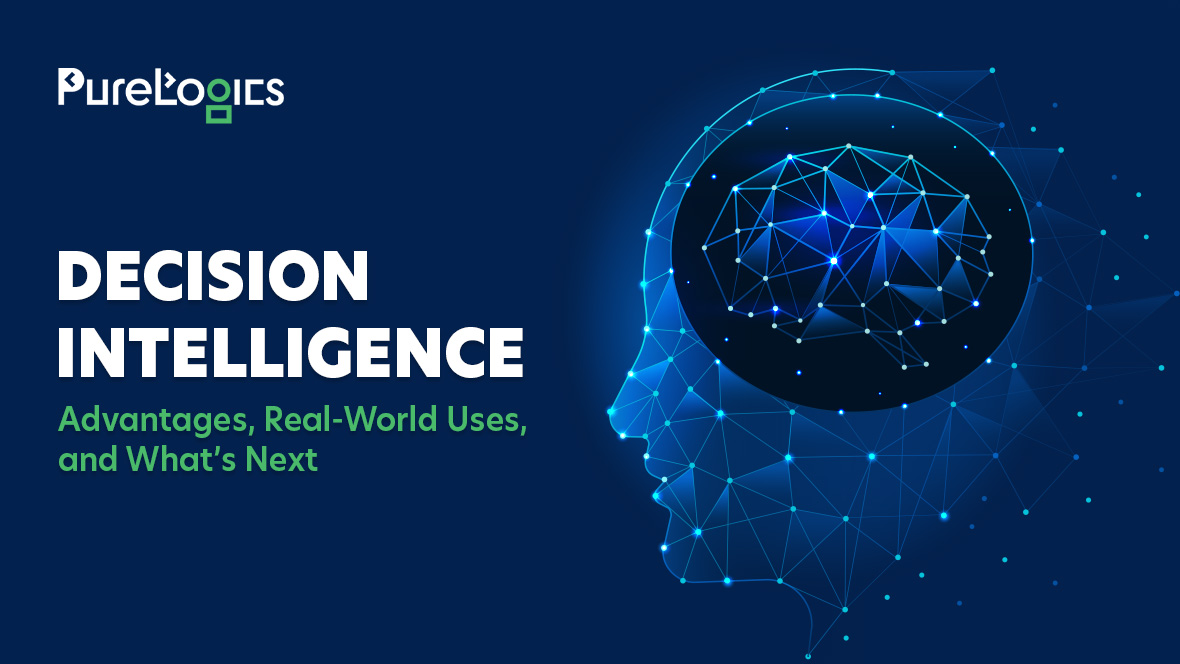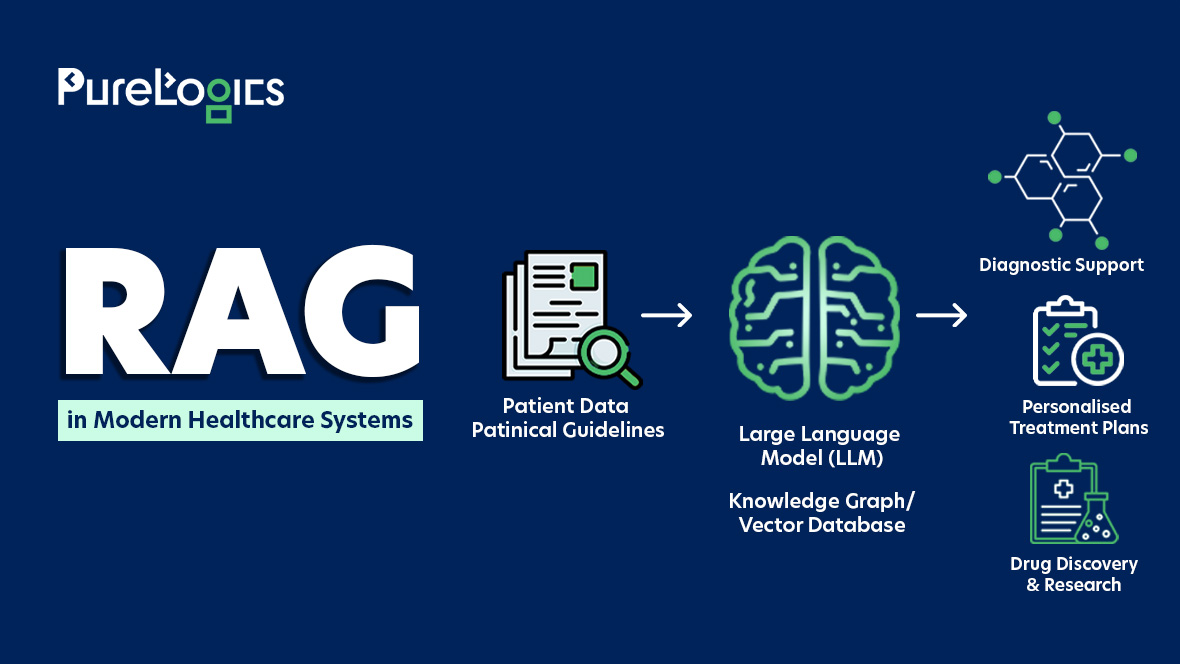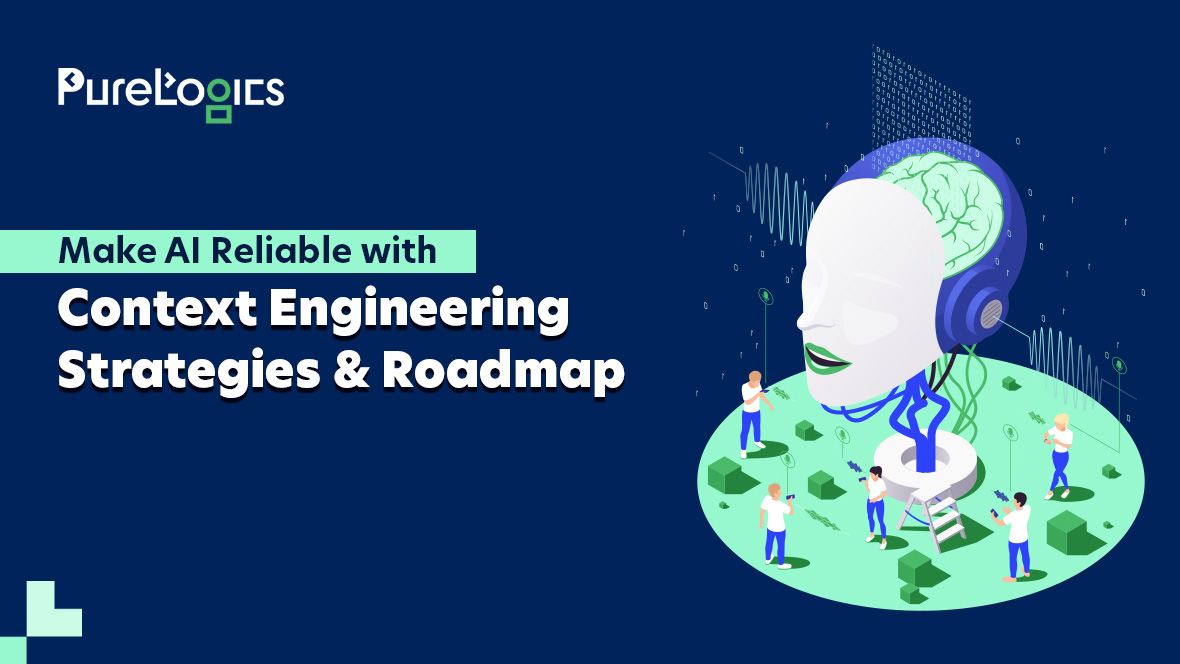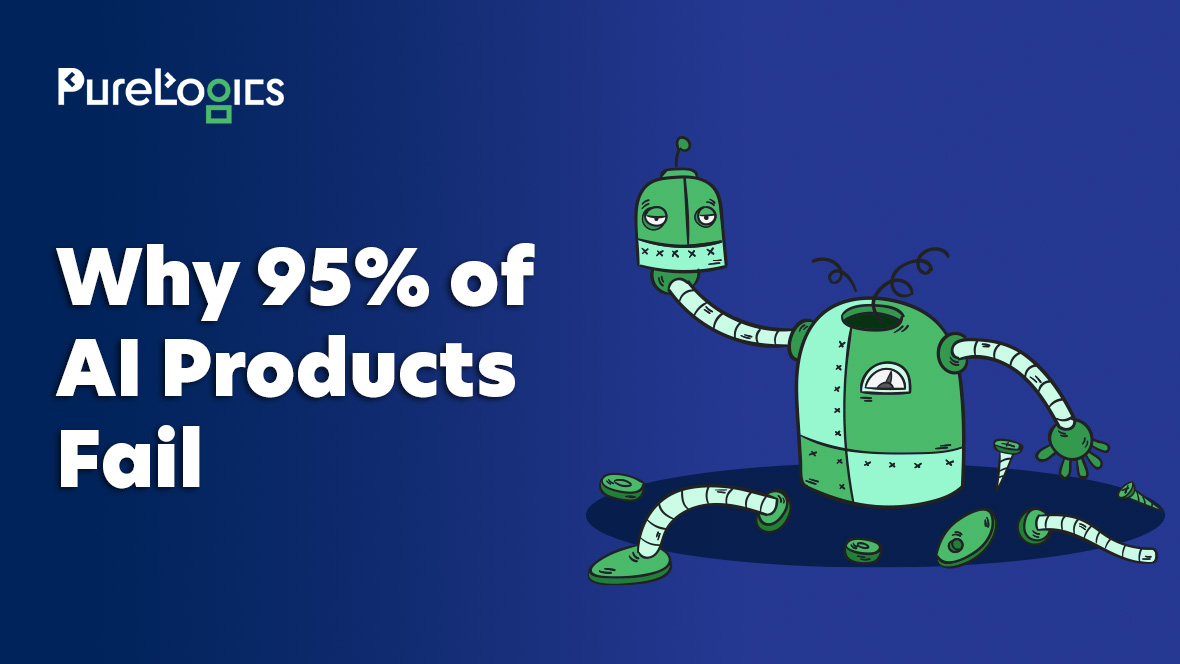It will be daunting (perhaps impossible) to find a large-scale business in any industry worldwide that isn’t seeking ways to get the maximum advantage of its data. Businesses prioritize this in order to follow the new data trends. According to industry experts, decision intelligence will be the most influential trend in the coming years.
Decision intelligence will help organizations develop enterprise strategy and make data-supported decisions. Decision intelligence is a revolutionary force for almost every industry. Today’s blog post sheds light on the fundamentals of decision intelligence, explains its use cases and benefits, and technologies that allow businesses to adopt it.
What is Decision Intelligence?
Decision intelligence or DI is an AI application to improve the decision-making capabilities of a business. It enhances decision-making across all levels—strategic, operational, and tactical—by providing a solid data foundation. This fosters trust in technologies like artificial intelligence, which streamline business processes and enable quicker, more precise decisions.
Decision intelligence also ensures transparency by offering clear insights into how decisions are made and how their outcomes are assessed, managed, and refined. By combining context with confidence, it delivers meaningful data that not only informs your choices but also strengthens business resilience while keeping costs low.
Advantages of Decision Intelligence
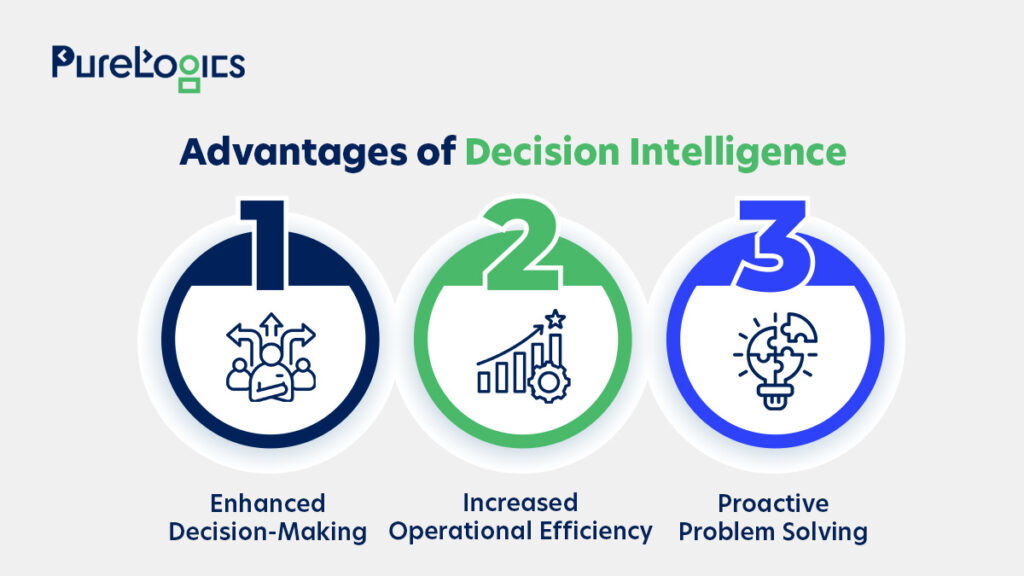
Look at some amazing benefits of decision intelligence!
Enhanced Decision-Making
Decision intelligence provides organizations with robust data analytics, enabling leaders to make informed choices. By integrating AI and machine learning, DI reduces human biases and improves accuracy in decision-making processes. This leads to faster and more reliable outcomes, which are critical in dynamic business environments.
Increased Operational Efficiency
With DI, businesses can automate routine decision-making tasks. This reduces the time spent on manual analysis, freeing up valuable human resources for more strategic initiatives. Automation not only speeds up operations but also minimizes the risk of errors, enhancing overall productivity.
Proactive Problem Solving
Decision intelligence enables predictive analytics, allowing organizations to anticipate challenges before they arise. Whether it’s predicting market trends or identifying potential operational bottlenecks, DI equips businesses to address issues proactively, ensuring they stay ahead of the competition.
Real-World Applications of Decision Intelligence
Now, let’s delve into the top 4 industries where decision intelligence technology has remarkable applications!
Retail and E-commerce
Retailers use decision intelligence to optimize inventory management, personalize customer experiences, and fine-tune pricing strategies. For instance, dynamic pricing models powered by DI help businesses adjust prices in real-time based on demand, competitor pricing, and market trends.
Healthcare
In healthcare, DI supports clinical decision-making by analyzing patient data to recommend personalized treatment plans. It also helps in resource allocation, such as optimizing staff schedules or managing hospital bed capacities during peak times.
Financial Services
Banks and financial institutions leverage decision intelligence for risk assessment, fraud detection, and customer credit scoring. By analyzing vast datasets, DI tools can identify patterns of fraudulent behavior or determine the creditworthiness of potential clients with high accuracy.
Manufacturing
Manufacturers adopt DI to improve supply chain management, optimize production processes, and predict equipment maintenance needs. This reduces downtime, enhances productivity, and ensures smooth operations.
Technologies Enabling Decision Intelligence
The following are technologies that enable decision intelligence. Let’s have a quick overview!
AI and Machine Learning
These technologies form the backbone of DI, enabling systems to learn from data and make predictions. AI and ML algorithms analyze complex datasets, uncovering insights that would be impossible for humans to detect manually.
Data Integration and Analytics Platforms
Decision intelligence relies on integrating data from multiple sources to provide a holistic view of the business. Advanced analytics platforms aggregate, cleanse, and analyze data, ensuring its accuracy and relevance for decision-making.
Natural Language Processing (NLP)
NLP enhances DI by enabling systems to process and understand human language. This allows businesses to extract insights from unstructured data sources such as customer feedback, social media posts, and emails.
Visualization Tools
To make data actionable, visualization tools present complex data insights in an intuitive format. Dashboards and graphs enable decision-makers to grasp trends and patterns quickly, supporting faster and more informed decisions.
What’s Next for Decision Intelligence?
As decision intelligence evolves, its integration with emerging technologies like edge computing, IoT, and blockchain will further enhance its capabilities. The future of DI lies in its ability to adapt to changing business landscapes and provide real-time insights for decision-making. Industries will continue to invest in DI tools to maintain their competitive edge, streamline operations, and foster innovation.
Final Remarks
Decision intelligence is reshaping how businesses make decisions, offering unmatched advantages in efficiency, accuracy, and strategic foresight. Whether you’re in retail, healthcare, or finance, adopting DI can transform your operations and drive growth.
Looking to incorporate decision intelligence into your business? Our team of experts at PureLogics is here to help you unlock its full potential. We offer a free consultation service. Contact us today to get started!


 [tta_listen_btn]
[tta_listen_btn]
 March 18 2025
March 18 2025

